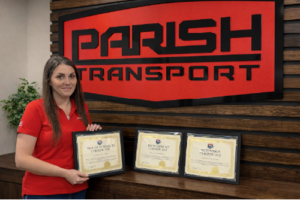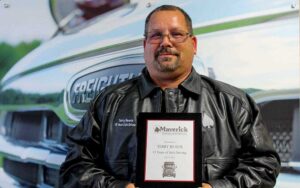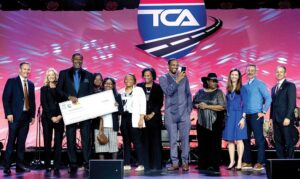In February, the Wisconsin State Legislature passed a reform to the state’s civil litigation system that would cap non-economic damage awards at $1 million.
However, Wisconsin Gov. Tony Evers quickly vetoed the measure.
In a statement, Evers called the $1 million cap arbitrary saying, “the law should redress a party’s injury; not repress an injured party.” Evers also said the bill violates the U.S. and Wisconsin constitutions’ guarantees of due process and would conflict with existing state law, inviting “continuous litigation.”
Meanwhile, West Virginia Gov. Jim Justice has signed into law a bill capping non-economic damage awards in CMV-related accidents at $5 million. And in Georgia, Gov. Brian Kemp is calling for the state to study limiting so-called “nuclear verdicts.”
Nuclear verdicts are generally understood to be in excess of $10 million. That said, what constitutes a “nuclear” amount depends on the level of insurance coverage and the size of a trucking company.
Many in the trucking industry believe capping these subjective, nonmonetary losses is critical to ensuring fairness and balance in civil litigation, and that doing so will the deter abusive and frivolous lawsuits that have perverted the system into a profit center for the plaintiffs’ bar.
“The laws on our books make it too easy to bring frivolous lawsuits against Georgia business owners, which drive up the price of insurance and stops new, good-paying jobs from ever coming to communities that need them the most,” Kemp said.
This statement aligns with Kemp’s background as a property developer. Owners of commercial properties and apartment complexes have been some of the biggest supporters of lawsuit limits. Another big backer is the trucking industry.
Kemp called the burdens on those industries unacceptable: “Local trucking companies either can’t afford the insurance they’re offered or can’t find a carrier altogether, and business owners live in fear of being sued for ridiculous claims on their property,” Kemp said.
Kemp says his call to “level the playing field in our courtrooms” will cut insurance premiums and help create more jobs.
The Truckload Carriers Association (TCA) is working to educate its members about lawsuit abuse reform and to bring the matter to federal legislators.
“It’s something we always have our eye on,” said Dave Heller, TCA’s senior vice president of safety and government affairs.
According to the American Transportation Research Institute (ATRI), within a recent eight-year period, settlement amounts in trucking accident cases increased 51.7% annually, rising from $2.3 to $23 million. In addition, data collected over a recent 13-year period revealed that during the first five years of the period studied, 26 truck accident lawsuits produced verdicts of over $1 million. In the last five years of data studied, there were 300.
Neal Kedzie, president of the Wisconsin Motor Carriers Association, says the legislation knocked down by Evers had broad support in the state legislature — and across the state — and expressed disappointment with that the governor’s veto.
“Wisconsin’s trucking industry is essential to everyone in our state, and rampant lawsuit abuse is impeding our ability to do our job safely and efficiently,” Kedzie said. The trucking industry is a key provider of middle-class jobs in Wisconsin, employing approximately 183,780 people throughout the state. More than 77% of Wisconsin communities rely exclusively on trucks to receive their goods.
Traci Nelson, president of the West Virginia Trucking Association, lauded the passage of lawsuit abuse reform legislation in her state and expressed appreciation to lawmakers.
“With approximately 33,890 West Virginians employed in the trucking industry and 84% of our communities relying solely on trucks for goods transportation, this legislation is critical for our state’s economic well-being,” Nelson said.
“When the plaintiffs’ bar perverts civil litigation into a casino game of ‘jackpot justice,’ the costs are borne by everyone — not just trucking companies, but consumers too, in the form of higher insurance rates and higher prices for everyday goods,” said Chris Spear, president and CEO of the American Trucking Associations, adding that “reasonable reform ensures justice and fairness drive accident litigation outcomes, not profits.”
This article originally appeared in the May/June 2024 edition of Truckload Authority, the official publication of the Truckload Carriers Association.
Born in Pine Bluff, Arkansas, and raised in East Texas, John Worthen returned to his home state to attend college in 1998 and decided to make his life in The Natural State. Worthen is a 20-year veteran of the journalism industry and has covered just about every topic there is. He has a passion for writing and telling stories. He has worked as a beat reporter and bureau chief for a statewide newspaper and as managing editor of a regional newspaper in Arkansas. Additionally, Worthen has been a prolific freelance journalist for two decades, and has been published in several travel magazines and on travel websites.











